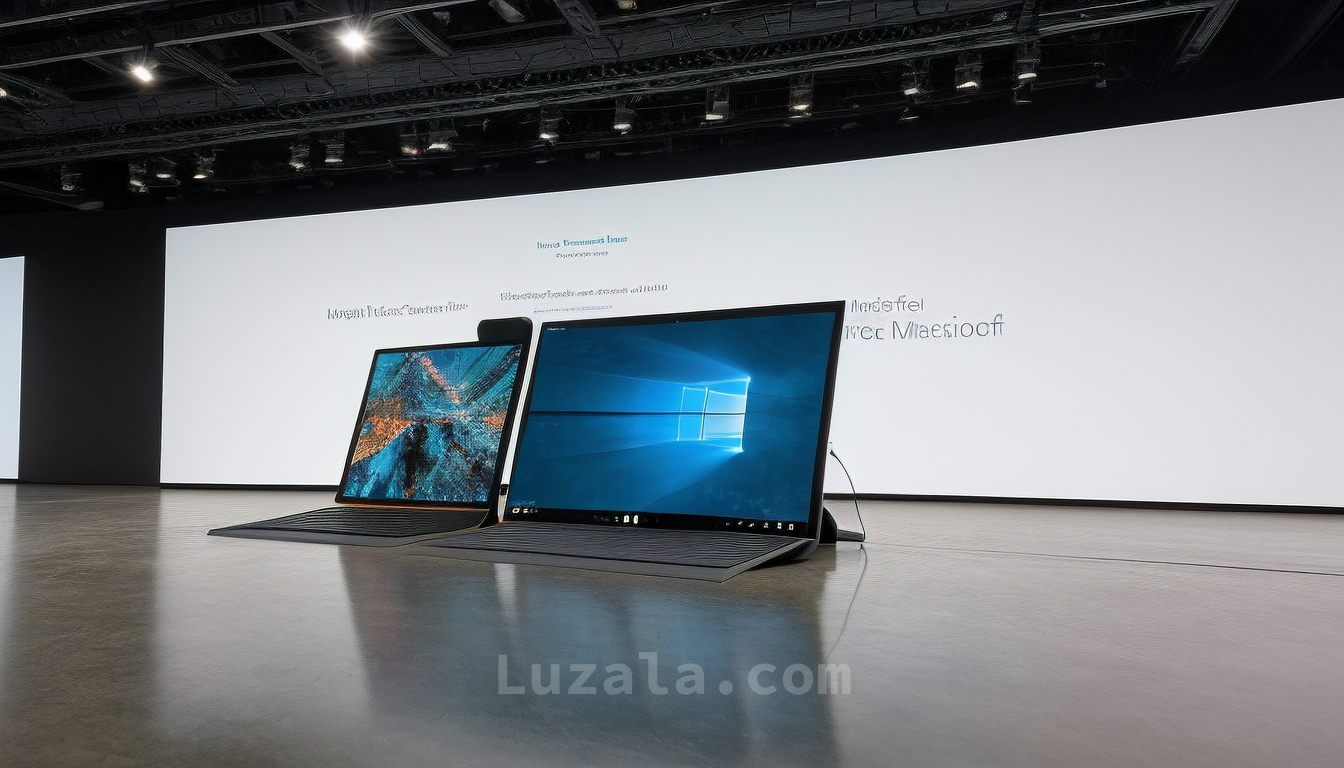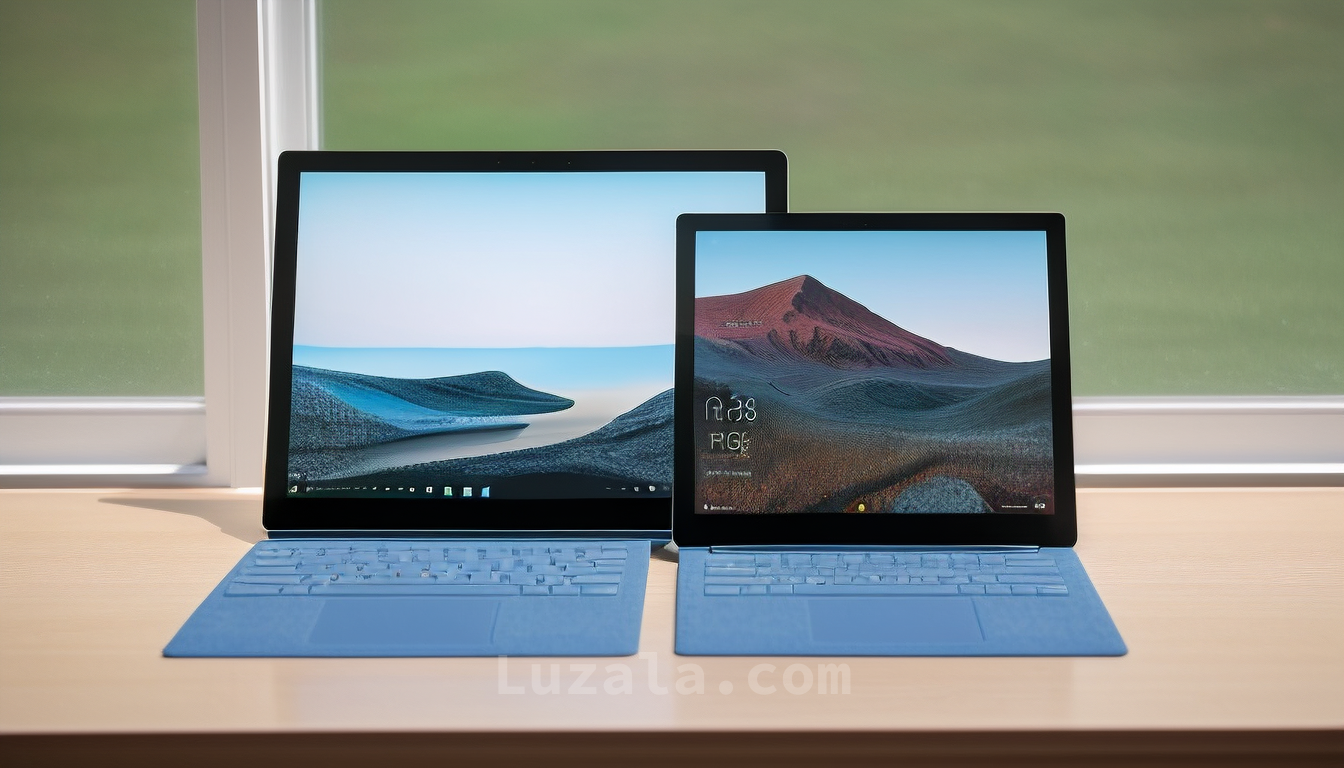MacBook vs. iPad Pro: Making the Ultimate Apple Upgrade Decision
Apples upcoming MacBook release prompts consideration of alternatives like the iPad Pro with Apple Silicon, offering power, portability, and a touchscreen experience. Decision hinges on individual needs and software preferences.
As of September 3rd, Apple is gearing up for the launch of its next-generation MacBook laptops in October. This impending release has many Apple enthusiasts contemplating whether now is the right time to upgrade their computers and, if so, which Mac model would be the best choice. Notably, Apple's forthcoming hardware offerings are expected to bring substantial advantages over the existing MacBook Pro and MacBook Air options.
Apple's recent strides in blurring the line between traditional computers and tablets have caught the attention of tech aficionados. In particular, the iPad Pro is positioned as a potential laptop or desktop computer replacement, as evidenced by Apple's "Your Next Computer Is Not A Computer" campaign. A crucial component of this transformation is Apple's Magic Keyboard, a peripheral that not only provides a familiar QWERTY typing experience but also incorporates a trackpad, essentially simulating a cursor on the iPad's touchscreen.
Mark Gurman, in his Power On newsletter for Bloomberg, has shed light on the evolution of the next Magic Keyboard. This upgraded version will draw inspiration from the design and materials used in Apple's MacBook laptops, employing aluminum to impart a premium and Mac-like feel. Aluminum, being a more durable material compared to polyurethane, ensures that the Magic Keyboard is less susceptible to bending and wear. Other notable changes include a larger trackpad, as reported earlier, and the inclusion of a single USB-C port integrated into the Magic Keyboard's hinge.
While traditional Macs remain a popular choice, for some, the ideal upgrade might not be a Mac but an iPad, specifically the iPad Pro models powered by Apple Silicon, the same architecture that drives MacBooks. Apple Silicon has allowed the Mac platform to outpace equivalent hardware running on Intel's x86 platform. Although Apple-designed chipsets have a long history of powering iPhones and iPads, the introduction of Mac-specific M-series chips unlocked greater performance and efficiency in the desktop arena.
The M-series chips also made their way into high-end iPad Pro models, delivering the same performance boost with increased mobility. It comes as no surprise that the upcoming M3 family, slated to debut in MacBook Air and consumer MacBook Pro laptops in October, is also expected to find its place in the iPad Pro lineup. If you're seeking power in a portable device, the M3-equipped iPad Pro should be a compelling consideration.
However, software compatibility plays a crucial role in the decision-making process. Some applications are exclusive to either iPadOS or macOS, which can influence your choice. With the rise of cloud computing, many tasks can now be accomplished within a web browser, and the widespread adoption of the iPad platform has encouraged developers to create versions of their apps for both iPadOS and macOS, promoting seamless interaction through Apple's online services.
Apple is actively working to bridge the gap between iPadOS and macOS, aiming for app compatibility across both platforms. While this integration is an ongoing process, it's worth noting that, over the next two years, the distinction between the two operating systems may become less pronounced, allowing users to select their hardware without worrying about software limitations.
A quick check of app compatibility may surprise you, as a wide range of desktop-level apps is available on Apple's tablet platform.
Comparing an M2-powered MacBook Air with an M2-powered iPad Pro, you'll notice a slight disparity in screen size, with the iPad Pro measuring 12.9 inches and the Air boasting a 13-inch display. However, the iPad's form factor is significantly more compact. One crucial distinction lies in the presence of a built-in keyboard in Apple's MacBooks, while an additional investment is needed for a keyboard with the iPad Pro.
The cost of this accessory must be weighed against the iPad Pro's portability advantages. It is smaller, lighter, and can be equipped with 5G connectivity for uninterrupted access wherever you go. Designed with portability in mind, the iPad Pro aligns perfectly with your on-the-go needs.
Another notable advantage of the iPad Pro is its touchscreen functionality, a feature found on iPhones, iPads, Android devices, Windows laptops, smartwatches, and more. Surprisingly, Apple has steadfastly refrained from incorporating a touchscreen into its MacBook lineup, leaving them devoid of this popular input method and stylus support.
It's important to acknowledge that the iPad Pro isn't for everyone, just as MacBook Air, MacBook Pro, or iMac may not suit every individual's needs. When navigating Apple's ecosystem in search of a new personal computer, it's natural to explore various Mac options. However, the iPad Pro presents a compelling alternative that could be a better fit for your requirements. In essence, Apple has something special with the iPad Pro, and for certain users, it surpasses the MacBook Pro.
In conclusion, with Apple's forthcoming MacBook releases on the horizon, prospective buyers face a significant decision regarding their computing needs. While MacBooks continue to be a reliable choice, the iPad Pro, particularly those powered by Apple Silicon, offers a compelling alternative, providing power, portability, and a touchscreen experience. The decision ultimately hinges on your specific requirements and software preferences. As Apple continues to merge the iPadOS and macOS ecosystems, the lines between the two platforms may further blur, making the choice between a MacBook and an iPad Pro more fluid than ever before. Consider your priorities, assess your app compatibility needs, and factor in the advantages of each device's form factor and features to make an informed decision in the evolving landscape of Apple's computing offerings./As of September 3rd, Apple is gearing up for the launch of its next-generation MacBook laptops in October. This impending release has many Apple enthusiasts contemplating whether now is the right time to upgrade their computers and, if so, which Mac model would be the best choice. Notably, Apple's forthcoming hardware offerings are expected to bring substantial advantages over the existing MacBook Pro and MacBook Air options.
Apple's recent strides in blurring the line between traditional computers and tablets have caught the attention of tech aficionados. In particular, the iPad Pro is positioned as a potential laptop or desktop computer replacement, as evidenced by Apple's "Your Next Computer Is Not A Computer" campaign. A crucial component of this transformation is Apple's Magic Keyboard, a peripheral that not only provides a familiar QWERTY typing experience but also incorporates a trackpad, essentially simulating a cursor on the iPad's touchscreen.
Mark Gurman, in his Power On newsletter for Bloomberg, has shed light on the evolution of the next Magic Keyboard. This upgraded version will draw inspiration from the design and materials used in Apple's MacBook laptops, employing aluminum to impart a premium and Mac-like feel. Aluminum, being a more durable material compared to polyurethane, ensures that the Magic Keyboard is less susceptible to bending and wear. Other notable changes include a larger trackpad, as reported earlier, and the inclusion of a single USB-C port integrated into the Magic Keyboard's hinge.
While traditional Macs remain a popular choice, for some, the ideal upgrade might not be a Mac but an iPad, specifically the iPad Pro models powered by Apple Silicon, the same architecture that drives MacBooks. Apple Silicon has allowed the Mac platform to outpace equivalent hardware running on Intel's x86 platform. Although Apple-designed chipsets have a long history of powering iPhones and iPads, the introduction of Mac-specific M-series chips unlocked greater performance and efficiency in the desktop arena.
The M-series chips also made their way into high-end iPad Pro models, delivering the same performance boost with increased mobility. It comes as no surprise that the upcoming M3 family, slated to debut in MacBook Air and consumer MacBook















Comments